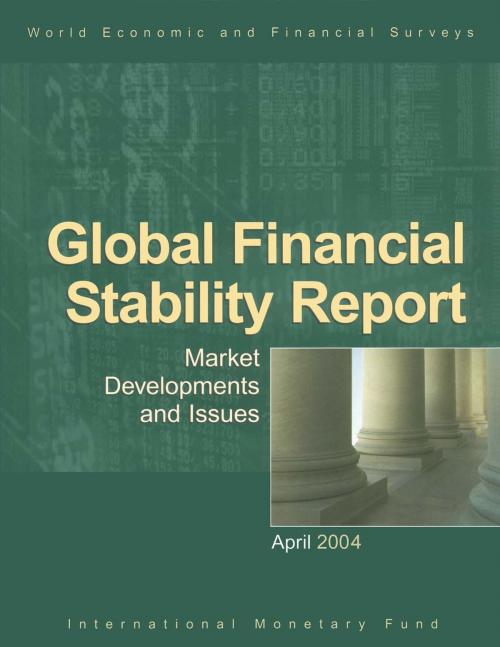Global Financial Stability Report, April 2004
Business & Finance, Economics, International Economics, Finance & Investing, Banks & Banking, Finance| Author: | International Monetary Fund. Monetary and Capital Markets Department | ISBN: | 9781452724744 |
| Publisher: | INTERNATIONAL MONETARY FUND | Publication: | April 6, 2004 |
| Imprint: | INTERNATIONAL MONETARY FUND | Language: | English |
| Author: | International Monetary Fund. Monetary and Capital Markets Department |
| ISBN: | 9781452724744 |
| Publisher: | INTERNATIONAL MONETARY FUND |
| Publication: | April 6, 2004 |
| Imprint: | INTERNATIONAL MONETARY FUND |
| Language: | English |
The Global Financial Stability Report (GSFR), published twice a year by the IMF, provides timely analysis of developments in mature and emerging market countries and seeks to identify potential fault lines in the global financial system that could lead to crisis. The GFSR aims to deepen its readers’ understanding of global capital flows, which play a critical role as an engine of world economic growth. Along with the IMF’s semiannual World Economic Outlook, the GFSR is a key vehicle for the IMF’s multilateral surveillance. The Global Financial Stability Report was created to provide a more frequent assessment of global financial markets and to address emerging market financing in a global context. The report focuses on current conditions in global financial markets, highlighting issues of financial imbalances, and of a structural nature, that could pose risks to financial market stability and sustained market access by emerging market borrowers. The GFSR focuses on relevant contemporary issues, not attempting to be a comprehensive survey of all potential risks. It also draws out the financial ramifications of economic imbalances highlighted by the IMF’s World Economic Outlook. It regularly contains, as a special feature, articles on structural or systemic issues relevant to international financial stability.
The Global Financial Stability Report (GSFR), published twice a year by the IMF, provides timely analysis of developments in mature and emerging market countries and seeks to identify potential fault lines in the global financial system that could lead to crisis. The GFSR aims to deepen its readers’ understanding of global capital flows, which play a critical role as an engine of world economic growth. Along with the IMF’s semiannual World Economic Outlook, the GFSR is a key vehicle for the IMF’s multilateral surveillance. The Global Financial Stability Report was created to provide a more frequent assessment of global financial markets and to address emerging market financing in a global context. The report focuses on current conditions in global financial markets, highlighting issues of financial imbalances, and of a structural nature, that could pose risks to financial market stability and sustained market access by emerging market borrowers. The GFSR focuses on relevant contemporary issues, not attempting to be a comprehensive survey of all potential risks. It also draws out the financial ramifications of economic imbalances highlighted by the IMF’s World Economic Outlook. It regularly contains, as a special feature, articles on structural or systemic issues relevant to international financial stability.















